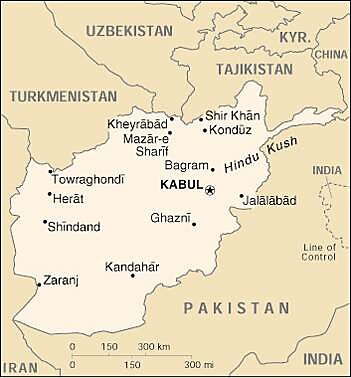It’s an annoying, hackneyed trope of foreign policy types to say “if you want to understand X, you have to understand Y.” That said, let me engage in a little bit of it.
What’s going on in Afghanistan, we’re supposed to believe, is about terrorism, failed states, economic development, counterinsurgency, counterterrorism, human rights, and some other stuff. And to an extent, it is about each of those things. But to my mind, if you want to get a handle on what’s driving events over there, and on its historical status as a plaything of regional and extraregional powers, you ought to read this article in today’s Wall Street Journal.
The themes that permeate the article are familiar: States as the primary actors in international politics, their uncertainty about other states’ intentions, the fundamental zero-sumness of security competition…somebody should cook up a theory or two on this stuff.
Eventually–although in fairness, God only knows when–we’re going to leave Afghanistan. When that happens, India and Pakistan are still going to live in the neighborhood. They’d each prefer to have lots of influence in Afghanistan, and to preclude the other from having too much. Accordingly, they’re both trying to set up structures and relationships that would, in the ideal scenario, let them control Afghanistan. In a less-than-ideal scenario, they’d like enough influence to undermine the other’s control of the country. Until you grasp that nettle, you’re really just fumbling around in the dark.
Find a solution for that in your COIN manual.

